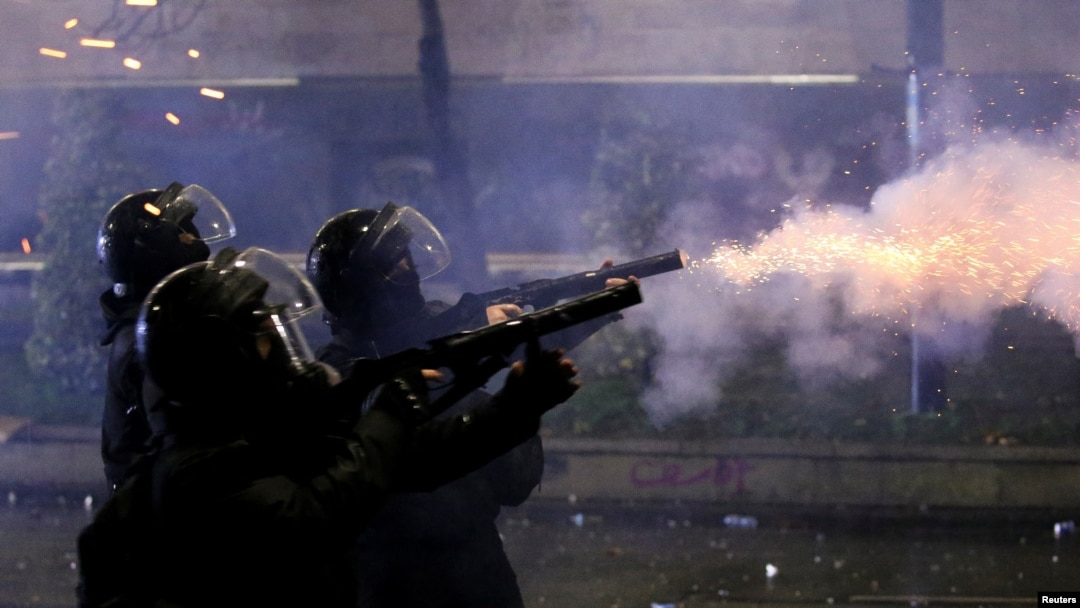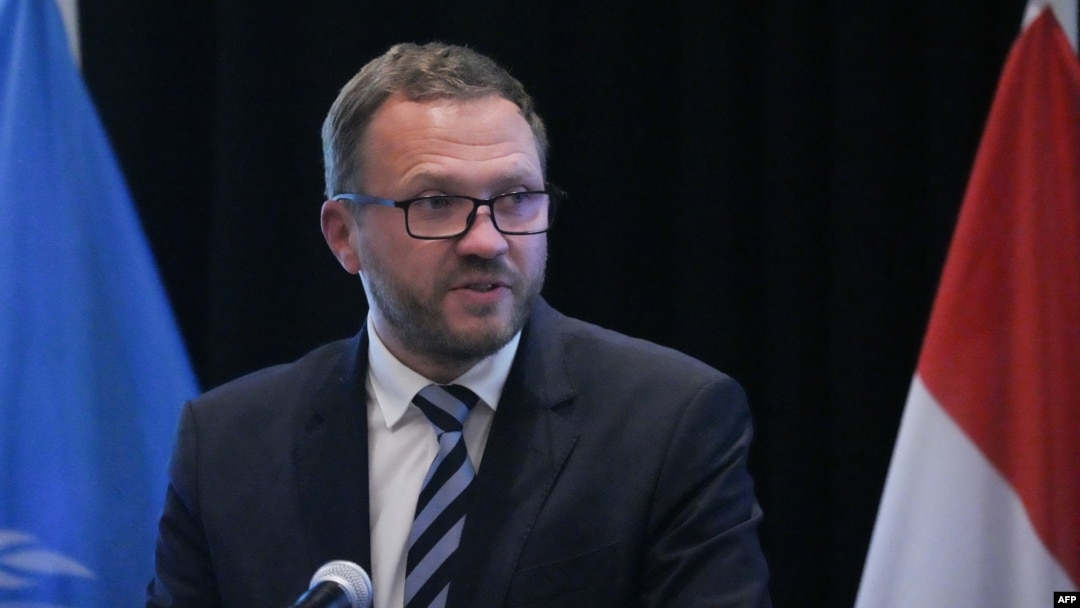Estonia has sanctioned more than a dozen top Georgian officials including its prime minister over Tbilisi's "criminal" crackdown on pro-European protesters, Tallinn's foreign minister said on Sunday.
Georgia's authorities have drawn widespread criticism for their handling of demonstrators, who accuse the ruling party of eroding democracy and seeking to bring the ex-Soviet country back into the embrace of former master Russia.

FILE - Law enforcement officers fire tear gas canisters as fireworks explode during a protest against the new government's decision to suspend the European Union accession talks and refuse budgetary grants until 2028, in Tbilisi, Dec. 2, 2024.
Police have deployed water cannons and tear gas to break up demonstrations while security agents have raided the offices of opposition parties and beaten dissenting lawmakers and journalists.
"The violence perpetrated by the authorities against protesters, journalists and opposition leaders is criminal and against human rights," said Estonia's top diplomat Margus Tsahkna.
"I call on all EU countries to react and to take actions," he added on X.
The fresh sanctions announcement comes a day after the ruling Georgian Dream party installed a hard-right loyalist former Manchester City striker as president.
That election process was boycotted by the pro-European opposition amid a growing constitutional crisis.
Along with its fellow Baltic states, Estonia had already banned several Georgian officials from setting foot on their territory.
Those included Georgia's Interior Minister Vakhtang Gomelauri as well as Georgia's richest man, Bidzina Ivanishvili, widely considered the puppet master pulling the strings of Georgian politics.
Since Georgian Dream claimed victory in October's elections — which the opposition has criticized as rigged — tens of thousands have taken to the streets.
Those protests have become nightly after Prime Minister Irakli Kobakhidze's shock decision in late November to shelve the Black Sea nation's talks to join the European Union.
Joining the bloc is an ambition mandated in Georgia's constitution which polls indicate has the support of some 80% of the country.


